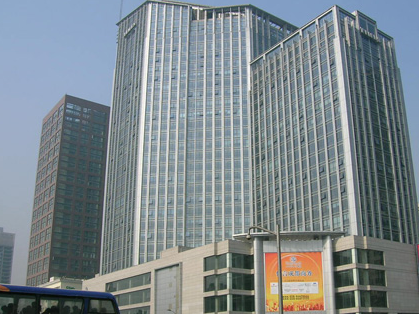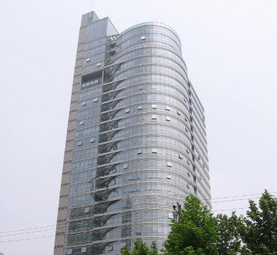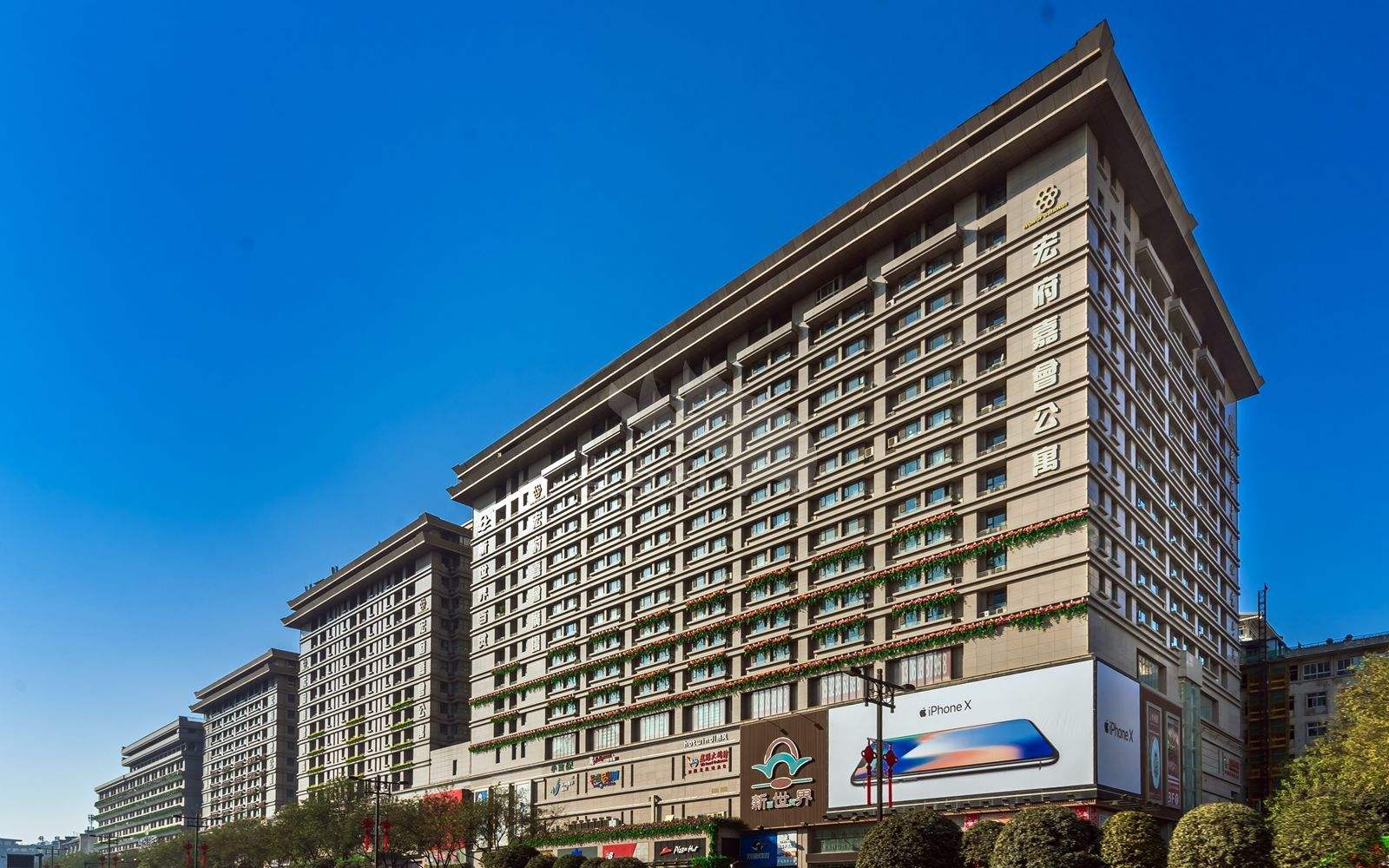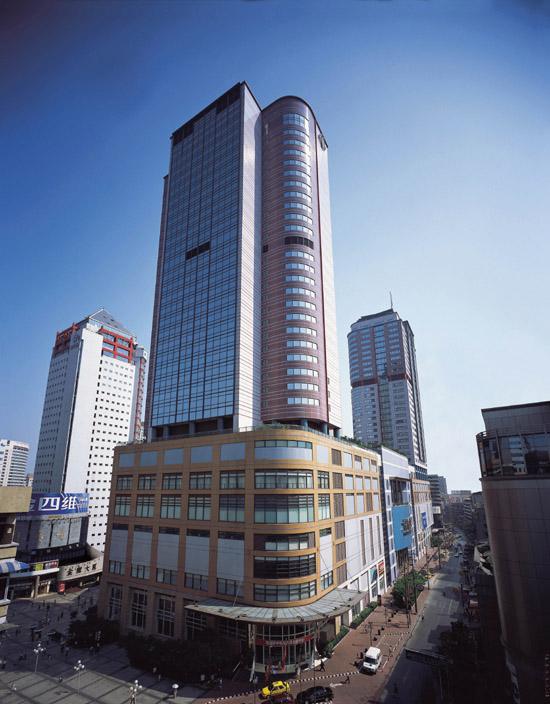Official25 托福阅读 Passage2 The Decline of Venetian Shipping文本+题目原文+答案解析【雷哥托福】
2019-02-27 10:21:55 发布 来源:雷哥托福TPO25 托福阅读 Passage2 The Decline of Venetian Shipping文本+题目原文+答案解析
The Decline of Venetian Shipping
In the late thirteenth century, northern Italian cities such as Genoa, Florence, and Venice began an economic resurgence that made them into the most important economic centers of Europe. By the seventeenth century, however, other European powers had taken over, as the Italian cities lost much of their economic might.
This decline can be seen clearly in the changes that affected Venetian shipping and trade. First, Venice’s intermediary functions in the Adriatic Sea, where it had dominated the business of shipping for other parties, were lost to direct trading. In the fifteenth century there was little problem recruiting sailors to row the galleys (large ships propelled by oars): guilds (business associations) were required to provide rowers, and through a draft system free citizens served compulsorily when called for. ■ In the early sixteenth century the shortage of rowers was not serious because the demand for galleys was limited by a move to round ships (round-hulled ships with more cargo space), with required fewer rowers. ■ But the shortage of crews proved to be a greater and greater problem, despite continuous appeal to Venice’s tradition of maritime greatness. ■ Even though sailors’ wages doubled among the northern Italian cities from 1550 to 1590, this did not elicit an increased supply. ■
The problem in shipping extended to the Arsenale, Venice’s huge and powerful shipyard. Timber ran short, and it was necessary to procure it from further and further away. In ancient Roman times, the Italian peninsula had great forest of fir preferred for warships, but scarcity was apparent as early as the early fourteenth century. Arsenale officers first brought timber from the foothills of the Alps, then from north toward Trieste, and finally from across the Adriatic. Private shipbuilders were required to buy their oak abroad. As the costs of shipbuilding rose, Venice clung to its outdated standard while the Dutch were innovation in the lighter and more easily handled ships.
The step from buying foreign timber to buying foreign ships was regarded as a short one, especially when complaints were heard in the latter sixteenth century that the standards and traditions of the Arsenale were running down. Work was stretched out and done poorly. Older workers had been allowed to stop work a half hour before the regular time, and in 1601 younger workers left with them. Merchants complained that the privileges reserved for Venetian-built and owned ships were first extended to those Venetians who bought ships from abroad and then to foreign-built and owned vessels. Historian Frederic Lane observers that after the loss of ships in battle in the late sixteenth century, the shipbuilding industry no longer had the capacity to recover hat it had displayed at the start of the century.
The conventional explanation for the loss of Venetian dominance in trade is establishment of the Portuguese direct sea route to the East, replacing the overland Silk Road from the Black sea and the highly profitable Indian Ocean-caravan-eastern Mediterranean route to Venice. The Portuguese Vasco da Gama’s Voyage around southern Africa to India took place at the end of the fifteenth century, and by 1502 the trans-Arabian caravan route had been cut off by political unrest.
The Venetian Council finally allowed round ships to enter the trade that was previously reserved for merchant galleys, thus reducing transport cost by one third. Prices of spices delivered by ship from the eastern Mediterranean came to equal those of spices transported by Portuguese vessels, but the increase in quantity with both routes in operation drove the price far down. Gradually, Venice’s role as a storage and distribution center for spices and silk, dyes cotton, and gold decayed, and by the early seventeenth century Venice had lost its monopoly in markets such as France and southern Germany.
Venetian shipping had started to decline from about 1530—before the entry into the Mediterranean of large volumes of Dutch and British shipping—and was clearly outclassed by the end of the century. A contemporary of Shakespeare (1564-1616) observed that the productivity of Italian shipping had declined, compared with that of the British, because of conservatism and loss of expertise. Moreover, Italian sailors were deserting and emigrating, and captains, no longer recruited from the ranks of nobles, were weak on navigations.
TPO25托福阅读 Passage2The Decline of Venetian Shipping 题目
Question 1 of 14: The word “resurgence” in the passage is closest in meaning to
A. transformation
B. comeback
C. program
D. expansion
Question 2 of 14: The word “compulsorily” in the passage is closest in meaning to
A. for free
B. for a time
C. by requirement
D. by design
Question 3 of 14: According to paragraph 2, which of the following contributed to the decline of Venetian shipping?
A. The loss of trade in Adriatic Sea
B. The move from galleys to round ships
C. The decreased demand for galleys
D. The doubling of sailor’s wages
Question 4 of 14: All of the following are mentioned in paragraph 2 as ways that Venice provided rowers for its galley EXCEPT
A. Requiring business associations to provide sailors
B. Recruiting sailors from other cities in northern Italy
C. Drafting Venetian citizens into services as rowers
D. Appealing to the traditions of Venice as a sea power.
Question 5 of 14:The word “outdated” in the passage is closest in meaning to
A. strict
B. enforced
C. improved
D. old-fashioned
Question 6 of 14: According to paragraphs 3, why did the building of ships in Venetian shipyards become increasingly expensive?
A. The wages of officers and workers in the Arsenale kept rising.
B. Roman shipyards were using all the available fir trees for the warships.
C. The timber used in the shipbuilding had to be brought from further and further away.
D. Venetian standards required that shipbuilders use top-quality materials.
Question 7 of 14: All of the following are mentioned in paragraph 3 and 4 as contributing to the problems of the Venetian shipbuilding industry at the end of the sixteenth century EXCEPT
A. The quality of work performed in the Arsenale had declined.
B. Venetian-built ships were heavy and generally inefficient.
C. Arsenale shipbuilders worked more slowly.
D. Only a few merchants controlled the buying and selling of most of the Venetian-built ships.
Question 8 of 14: Which of the sentences below best expresses the essential information in the highlighted sentence in the passage? Incorrect choices change the meaning in important ways or leave out essential information.
A. The loss of ships in battle at the end of the sixteenth century showed that Venetian shipbuilders lacked the skills they had possessed at the beginning of the century.
B. Venetian shipbuilding failed to quickly replace the ships lost in battle at the end of the sixteenth century as it would have done earlier in the century.
C. Frederic Lane noted that Venice lost ships in battle at the end of the sixteenth century, showing that Venetian shipbuilding was no longer known for its reliability.
D. Venetian shipbuilding had been known for its high quality of work at the beginning of the sixteenth century, but toward the end of the century Venetian ships were poorer in quality.
Question9 of 14: The word “conventional” in the passage is closest in meaning to
A. informal
B. logical
C. correct
D. usual
Question10 of 14: Why does the author mention “Vasco da Gama’s Voyage around southern Africa to India” in the passage?
A. To indicate how the Portuguese came to challenge Venetian dominance of trade with the East
B. To explain why political troubles resulted in the closing of the usual routes to India
C. To prove that Venetians could not sail round ships as efficiently as sailors from other countries did
D. To show that Venetian reliance on round ships rather than galleys proved to be weakness
Question11 of 14: Which of the following can be inferred from paragraph 6 about the Venetian Council’s decision concerning the use of round ships?
A. It resulted in a return to profitable in luxury goods for Venetian merchants.
B. Ultimately it did not restore the superiority in the spice trade that Venice had enjoyed earlier.
C. It eventually enabled Venetian merchants to increase the quantity and price of the spices they sold in Europe.
D. It means a long-awaited improvement in the fortunes of the shipbuilding industry in Venice.
Question 12 of 14: According to paragraphs 6, in the sixteenth century the price of spices declined because
A. France and Germany established monopolies and dictated prices.
B. Venetian merchant galleys competed with Venetian round ships for the spice trade.
C. more spices were available because both the Venetians and the Portuguese were importing them.
D. increased demand for silk, dyes, cotton and gold meant that people had less money to spend on spices.
Question13 of 14: Look at the four squares [■] that indicate where the following sentence could be added to the passage.
The increase in reward still did not attract young people to this hard life, and convicted criminals and slaves were pressed into services.
Where would the sentence best fit? Click on a square to add the sentence to the passage.
A. In the early sixteenth century the shortage of rowers was not serious because the demand for galleys was limited by a move to round ships (round-hulled ships with more cargo space), with required fewer rowers.
B. But the shortage of crews proved to be a greater and greater problem, despite continuous appeal to Venice’s tradition of maritime greatness.
C. Even though sailors’ wages doubled among the northern Italian cities from 1550 to 1590, this did not elicit an increased supply.
D. /
Question14 of 14: Directions: An introductory sentence for a brief summary of the passage is provided below. Complete the summary by selecting the THREE answer choices that express the most important ideas in the passage. Some sentences do not belong in the summary because they express ideas that are not presented in the passage or are minor ideas in the passage. This question is worth 2 points.
The loss of power and prestige of Italian cities by the sixteenth century is clearly seen in the decline of Venetian shipping.
Answer choices
A. Venetian ships were famous for carrying large cargoes of spices and luxury goods around the world in fast, oar-driven galleys.
B. A shortage of timber for building the traditional galleys and a lack of sailors to row them meant a loss of Venetian shipping business.
C. The Venetian Council made sure that Venetian-built and owned ships kept special privileges in transporting luxury goods in and out of Venice.
D. Venetian round ships bringing spices and silk from the East helped drive prices down so that ordinary people could afford to buy them.
E. Venice failed to keep up with improvement in ship design, and the cost of shipbuilding rose, and quality and efficiency declined.
F. The Portuguese direct sea route to the East adversely affected Venetian trade, and Venice fell behind the Dutch and the British in the quality of their ships and sailing skills.
TPO25托福阅读Passage2The Decline of Venetian Shipping真题解析
Question 1 of 14
正确答案:B
解析:resurgence,回潮;再起;复苏,复活;中断之后的继续;近义词是comeback,回归;东山再起;恢复,复原;巧妙的回答或反驳。通过began an economic resurgence that made them into the most important economic centers of Europe推断此处是“经济复苏”之意。
Question 2 of 14
正确答案:C
解析:compulsorily,强迫地,强制地;近义词是by requirement。根据guilds were required to provide rowers, and through a draft system free citizens served compulsorily when called for句子的前后逻辑一致,推断compulsorily和were required to意思一致。
Question 3 of 14
正确答案:A
解析:第二段主要分析威尼斯航运地位下降的原因。A项对应第2句叙述的第一个原因,这句话的主干是Venice’s intermediary functions in the Adriatic Sea were lost to direct trading。B项和C项的表述都出现在第4句,但是这2点都不是威尼斯航运地位下降的原因,原因是第5句的shortage of crews;D项的表述与最后一句话矛盾,原句意思是“虽然船员的工资加倍了,但对供应的增加没有太大帮助”,工资增加虽然没起到帮助作用,但也不是导致航运衰退的因素。
Question 4 of 14
正确答案:B
解析:在第二段中,A项对应第3句中的guilds (business associations) were required to provide rowers;C项对应第3句中的through a draft system free citizens served compulsorily when called for;D项对应倒数第2句中的despite continuous appeal to Venice’s tradition of maritime greatness。排除法选B,原文中没有提到从北意大利其他城市招募水手。
Question 5 of 14
正确答案:D
解析:outdated,过时的,旧式的,落伍的,不流行的;近义词是old-fashioned,陈旧;老式的,过时的;老派的,守旧的。根据词汇所在句前后的对比逻辑关系,可推知outdated standard和innovation是相反的意思。
Question 6 of 14
正确答案:C
解析:第三段主要解释了威尼斯造船变贵的原因。因为木材的短缺,并且需要从越来越远的地方购买,因此造船成本增加了(主要定位第2句和最后1句)。ABD在第三段中都没有依据。
Question 7 of 14
正确答案:D
解析:关于十六世纪末威尼斯造船业中出现的问题,A项对应第四段前2句,…that the standards and traditions of the Arsenale were running down. Work was stretched out and done poorly;B项对应第三段段尾句,Venice clung to its outdated standard while the Dutch… lighter and more easily handled ships,对比显示出威尼斯制造的船笨重和质量差;C项对应第四段第3句Older workers had been allowed to stop work a half hour before the regular time…;排除法选D,威尼斯大部分船只贸易被一小部分商人控制了,在文中没有依据。
Question 8 of 14
正确答案:B
解析:高亮句大意是,史学家认为,十六世纪末海战失利后,造船业再也不能恢复到它世纪初的样子了。只有B项的表述是对高亮句准确地同义改写。A项中的skills,C项中的reliability和D项中的quality在高亮句中都没有出现。
Question 9 of 14
正确答案:D
解析:conventional,传统的,习用的,平常的,依照惯例的,约定的;近义词是usual。
Question 10 of 14
正确答案:A
解析:Vasco da Gama’ Voyage around southern Africa to India是作者的举例,举例目的定位到第一句话,即主题句。主题句的大意是:葡萄牙新航线的开辟,是威尼斯航海地位丧失的原因。第2句中Vasco da Gama的航行就是葡萄牙开辟新航线,开始取代威尼斯统治地位的实例,A正确。
Question 11 of 14
正确答案:B
解析:第六段主要内容是关于威尼斯议会采取的措施以及效果,段尾句说明威尼斯失去了在欧洲市场上的垄断地位。B项的“最终没能恢复以前有的香料贸易霸主地位”对应段落最后一句话的大意,请注意这句话的主干:Venice’s role decayed and lost its monopoly in markets。A项错在原文没有提到有关奢侈品经营的问题;C项与段尾句的for spices…decayed矛盾;D项的“人们翘首以盼的造船业的发展”与第六段大意矛盾。
Question 12 of 14
正确答案:C
解析:十六世纪香料价格下降的原因,定位到第六段第2句话:从地中海东部运来的和葡萄牙运来的香料价格相等,新旧两条航线的开辟增加了香料总量,因此香料价格下降了,C项是对原因准确的同义改写。
Question 13 of 14
正确答案:D
解析:插入句的上半部分是The increase in reward,因此上一句话应该已经提到了报酬的具体内容,D处前面的句子提到了薪水翻倍(sailors’ wages doubled),所以插入句放在D处最合适。
Question 14 of 14
正确答案:BEF
解析:本文大意是,十六世纪威尼斯海运的下降显示了它霸主地位的丧失。B项对应第二段最后2句和第三段的大意:船员短缺和木材缺乏都意味着威尼斯造船业的衰落;E项是第三段最后一句和第四段的大意:威尼斯造船水平缺乏进步,造船变贵了,造船质量也下降了;F项对应第五段和第七段的大意:葡萄牙开辟新航道,威尼斯造船水平不如荷兰,航海水平不如英国。
A项属于细节信息;C项和第六段大意矛盾;D项的“普通人购买”在文中没有依据。
全套TPO阅读原文+题目文本+答案解析手册(合计1300页文档),在雷哥托福微信公众号获取
雷哥托福上课详情请咨询老师
1、请联系官方QQ:2250281936;
2、请联系官方个人微信号:toefl12345;
3、请咨询官方电话:400-6021-727;
【使用提示】
1、雷哥托福在线直播课,不限地域,全球考生均可报名参与。
2、获取更多托福信息,请关注雷哥托福微信公众号:toeflgo
 直播
直播



















 分享成功
分享成功









 托福预测|2020年1月11日&12日托福考试机经预测最全资料版!
托福预测|2020年1月11日&12日托福考试机经预测最全资料版!
























草莓小菇凉:说的非常好,十分有道理,棒棒棒!
06-08 15:44:55